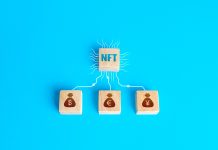If 2017 marked the year of initial coin offerings, 2018 is the era of cryptocurrency regulations. As the world comes to an understanding of how to treat bitcoins and other cryptocurrencies, some nations are cautious while others are welcoming or even antagonistic.
From the US to Canada and Latin America: Changing Reactions to Cryptos
The US lacks a coherent direction in terms of cryptocurrency regulation. SEC or the Securities & Exchange Commission has informed investors of risks, halted many ICOs and pointed at the requirement for more regulation. In direct contrast, the Commodity Futures Trading Commission is the first US-based regulatory authority to permit public trading of crypto derivatives.
The Secretary of the Treasury has also worked with G20 to prevent bitcoins from being digital versions of the Swiss bank account for money hoarders. Cryptocurrencies and ICOs also need to clear the blue-sky laws made by each of the US states. While Canada’s FCA/Financial Consumer Agency does not see cryptocurrencies as legal tender, it does not have a harsh stance.
But the Central Bank of Canada is less welcoming saying cryptocurrencies are not assets or currencies for the large part, but technically securities. Venezuela, part of Latin America, is even seeking to avoid economic sanctions through a petro cryptocurrency, backed by oil.
Asian Powerhouses: China, Japan, India, Singapore, and Korea
Among Asian countries, while China and Korea are clearly hostile to cryptocurrencies, Japan is clearly more welcoming. But factors like the 2018 hacking of the Japanese exchange leading to loss of NEM coins worth USD 530 million have prompted concerns and a backlash in Japan too. China began by banning ICOs. It then went on to freezing bank accounts of exchanges, kicking out the bitcoin miners.
South Korean government officials enforced a January 2018 rule preventing anonymous accounts from crypto trading after nationwide sell-offs on the infamous Red Tuesday. Additionally, India has been suppressing cryptocurrencies.
Australia, EU, UK, Russia: Differing Stances on Cryptos
The ATO or Australian Taxation office has hinted at possible future cryptocurrency regulations, stating that bitcoins are neither money nor foreign currency, though an advantage for the capital gains tax.
In the EU and UK, while Brexit may have parted them, both nations are united in their efforts to regulate cryptocurrencies. Due diligence and reporting suspicious transactions are the goals of both nations.
Russia is in two minds about regulations of the currency. The Russian central bank has clearly voiced its disapproval of regulating cryptocurrencies or equating them with foreign currencies. The Russian Federation under PM Putin is allowing only qualified investors to deal with cryptocurrencies to prevent the use of these for evading taxes, financing criminal and terrorist activities etc.
The African Continent: A Different Approach
Africa’s economy underwent a recession in 2017 causing a fiat currency crunch. Bitcoin trading booms resulted in places like Nigeria as a result of this. Ghana, however, does not see bitcoin as legal tender. Other African countries fall somewhere in the middle. South Africa is betting big on cryptocurrencies.
Final Word
As demands for cryptocurrencies grow, global and international regulators remain divided in their opinions. Different countries have differing standards. Regulatory stances have the ability to influence the price of bitcoin and other cryptocurrencies. So, while laws and rules may seem an exercise in theory, they are equally important in practice.
In this article, Blackmore CEO Phillip Nunn dissects what cryptocurrency regulations in 2018 hold for the virtual money and its users worldwide. Phillip is a renowned industry speaker, advisor, mentor and thought leader in the field of cryptocurrency as well as blockchain and Fintech.
Disclaimer: “This article was contributed by the CEO of Blackmore Group, Phillip Nunn. Entrepreneur, financial expert, corporate evangelist, fintech and crypto trading authority, Phillip is an industry speaker and renowned thought leader on topics such as Fintech, Cryptocurrency, initial coin offerings and Blockchain technologies.”
Find a Home-Based Business to Start-Up >>> Hundreds of Business Listings.

















































